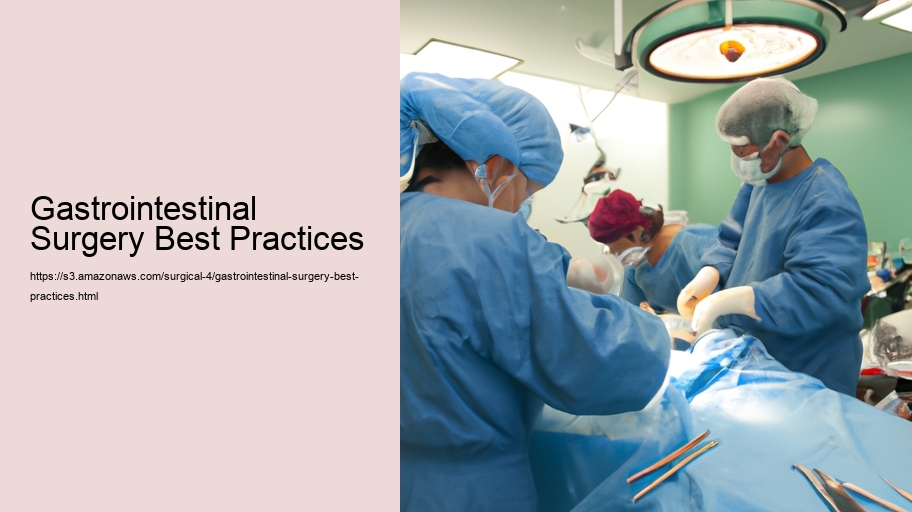Gastrointestinal surgery encompasses a vast array of procedures targeting the digestive tract, which includes the esophagus, stomach, small intestine, large intestine, rectum, and accessory organs such as the liver, gallbladder, and pancreas. Given the complexity and variability of these procedures, the establishment and adherence to best practices in gastrointestinal surgery are crucial for optimizing patient outcomes, enhancing recovery, and minimizing complications.
Best practices in gastrointestinal surgery begin with thorough preoperative preparation. Patients should undergo a comprehensive evaluation to assess their surgical risk and to identify any comorbid conditions that may impact the surgery or recovery process. This evaluation typically includes a detailed medical history, physical examination, blood tests, and imaging studies. Nutritional assessment is also essential, as many patients with gastrointestinal issues may have deficiencies that could impair healing and recovery.
Informed consent is a critical component of preoperative preparation. Surgeons must ensure that patients understand the nature of their condition, the proposed surgical procedure, its potential benefits and risks, and possible alternative treatments. This conversation should also cover the expected postoperative course, including pain management, dietary restrictions, and activity level.
Advancements in surgical techniques have greatly influenced best practices. Whenever possible, minimally invasive techniques, such as laparoscopy or robotic surgery, are preferred. These approaches offer several advantages over traditional open surgery, including smaller incisions, less pain, reduced risk of infection, shorter hospital stays, and faster return to normal activities.
Intraoperative best practices include the use of prophylactic antibiotics to prevent surgical site infections and the application of strict aseptic techniques. Real-time imaging and navigation systems can enhance precision and safety, particularly in complex or reoperative cases.
The implementation of Enhanced Recovery After Surgery (ERAS) protocols has revolutionized postoperative care in gastrointestinal surgery. ERAS protocols are a set of evidence-based practices that aim to reduce the surgical stress response, maintain postoperative physiological function, and expedite recovery. Key elements of ERAS include early mobilization, optimized pain control with a focus on minimizing opioid use, early enteral nutrition, and avoidance of unnecessary tubes and drains.
Effective pain management is critical for recovery and patient satisfaction. Multimodal pain management strategies, which use a combination of medications and techniques to control pain, are the standard of care. These may include nonsteroidal anti-inflammatory drugs (NSAIDs), acetaminophen, regional anesthesia, and when necessary, judicious use of opioids.
Nutritional support is another cornerstone of postoperative care. Patients should have an individualized nutrition plan that accounts for their preoperative nutritional status and the specifics of their surgery. Early enteral nutrition (feeding through the digestive tract) is encouraged as it has been shown to improve outcomes and reduce complications.
Monitoring for complications is essential in the postoperative period. Surgeons should remain vigilant for signs of infection, anastomotic leaks, thromboembolic events, and other potential complications. Prompt recognition and management of these issues are paramount to ensure patient safety and a successful recovery.
Finally, best practices extend to follow-up care. Scheduling postoperative visits allows for the monitoring of the patient's recovery and the timely detection and management of any late complications or concerns. Additionally, patient education on lifestyle modifications, dietary changes, and medication adherence is vital for long-term success and the prevention of future gastrointestinal issues.
In conclusion, best practices in gastrointestinal surgery involve a holistic approach that spans from meticulous preoperative evaluation to attentive postoperative care. By adhering to evidence-based protocols, employing advanced surgical techniques, and focusing on patient-centered care, healthcare professionals can help ensure safe and effective surgical outcomes for their patients.
